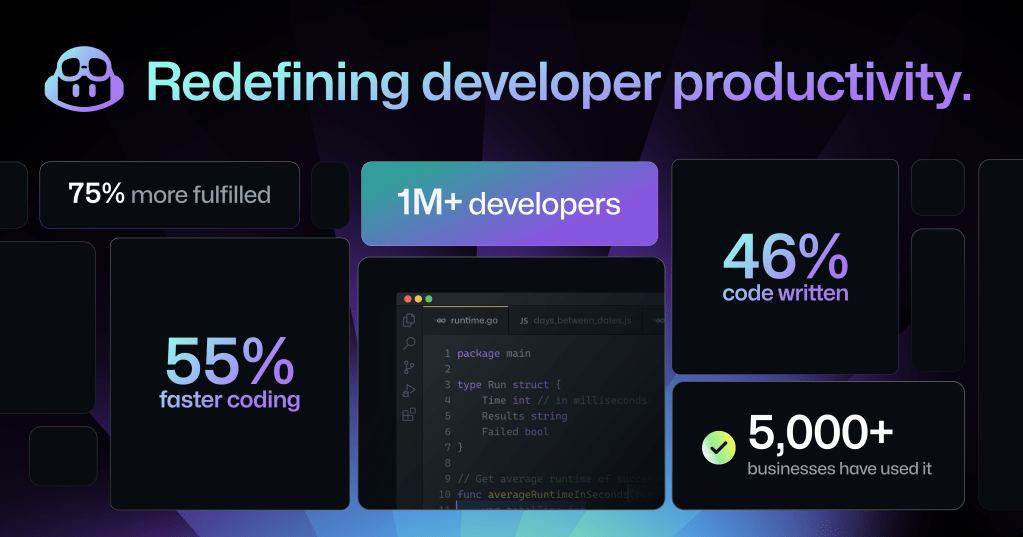Post Syndicated from Mark Paulsen original https://github.blog/2023-04-14-3-benefits-of-migrating-and-consolidating-your-source-code/
In a previous blog on consolidating your toolkit, we shared strategies to help you simplify your tech stack, which ultimately helps developers be more productive. In fact, developers are almost 60% more likely to feel equipped to do their job when they can easily find what they need.
But there are other benefits of consolidating and simplifying your toolkit that may be surprising–especially when migrating your source code and collaboration history to GitHub.
Today, we’ll explore three benefits that will support enterprises in a business climate where everyone is being asked to do more with less, as well as some resources to help get started on the migration journey.
1. Enable developer self-service culture
Some of the benefits enterprises can achieve with DevOps are improved productivity, security, and collaboration. Silos should be broken down and traditionally separated teams should be working in a cohesive and cloud native way.
Another benefit that DevOps enables, which is a key part of the Platform Engineering technology approach, is the ability for development teams to self-service workflows, processes, and controls which traditionally have either been manual, or tightly-coupled with other teams. A great example of this was covered in a previous blog where we described how to build consistent and shared IaC workflows. IaC workflows can be created by operations teams, if your enterprise separation of duties governance policies require this, but self-serviced when needed by development teams.
But this type of consistent, managed, and governable, self-service culture would not be possible if you have multiple source code management tools in your enterprise. If development teams have to spend time figuring out which tool has the source of truth for the workflow they need to execute, the benefits of DevOps and Platform Engineering quickly deteriorate.
There is no better place to migrate the core of your self-service culture to than GitHub–which is the home to 100 million developers and counting. Your source code management tool should be an enabler for developer productivity and happiness or else they will be reluctant to use it. And if they don’t use it, you won’t have a self-service culture within your enterprise.
2. Save time and money during audits
The latest Forrester report on the economic impact of GitHub Enterprise Cloud and GitHub Advanced Security, determined a 75% improvement in time spent managing tools and code infrastructure. But one of the potentially surprising benefits is related to implementing DevOps and cloud native processes that would both help developers and auditors save time and money.
If your tech stack includes multiple source code tools, and other development tools which may not be integrated our have overlapping capabilities, each time your security, compliance, and audit teams need to review the source of truth for your delivery artifacts, you will need to gather artifacts and setup walkthroughs for each of the tools. This can lead to days and even weeks of lost time and money on simply preparing and executing audits–taking your delivery teams away from creating business value.
Working with GitHub customers, Forrester identified and quantified key benefits of investing in GitHub Enterprise Cloud and GitHub Advanced Security. The corresponding GitHub Ent ROI Estimate Calculator includes factors for time saving on IT Audit preparations related to the number of non-development security or audit staff involved in software development. This itself can lead to hundreds of thousands if not millions of dollars of time savings.
What is not factored into the calculator is the potential time savings for development teams who have a single source of truth for their code and collaboration history. A simplified and centrally auditable tech stack with a single developer-friendly core source code management platform will enable consistent productivity even during traditionally time-consuming audit and compliance reviews–for both developers and non-developers.
3. Keep up with innovation
If you are using another source code platform besides GitHub, or if GitHub is one of several tools that are providing the overlapping functionality, some of your teams may be missing out on the amazing innovations that have been happening lately.
Generative AI is enabling some amazing capabilities and GitHub is at the forefront with our AI pair-programmer, GitHub Copilot. The improvements to developer productivity are truly amazing and continue to improve.

GitHub continues to innovate with the news about GitHub Copilot X, which is not only adopting OpenAI’s new GPT-4 model, but introducing chat and voice for GitHub Copilot, and bringing GitHub Copilot to pull requests, the command line, and docs to answer questions on your projects.
Innovations like this need to be rolled-out in a controlled and governable manner within many enterprises. But if your techstack is overly complex and you have several source code management tools, the roll-out may take a long time or may be stalled while security and compliance reviews take place.
However, if your development core is GitHub, security and compliance reviews can happen once, on a centrally managed platform that is well understood and secure. And you’ll be front row for all of the amazing new innovations that GitHub will be releasing down the road.
Get started today
If you are planning on migrating your source code and collaboration history to GitHub and have questions, thankfully, many other enterprises have done this already with great success and there are resources to help you through the process.
Visit our GitHub Enterprise Importer documentation for details on supported migration paths, guides for different migration sources, and more.
If you want to learn more about how GitHub can benefit your business, while increasing developer velocity and collaboration, see how GitHub Enterprise can help.